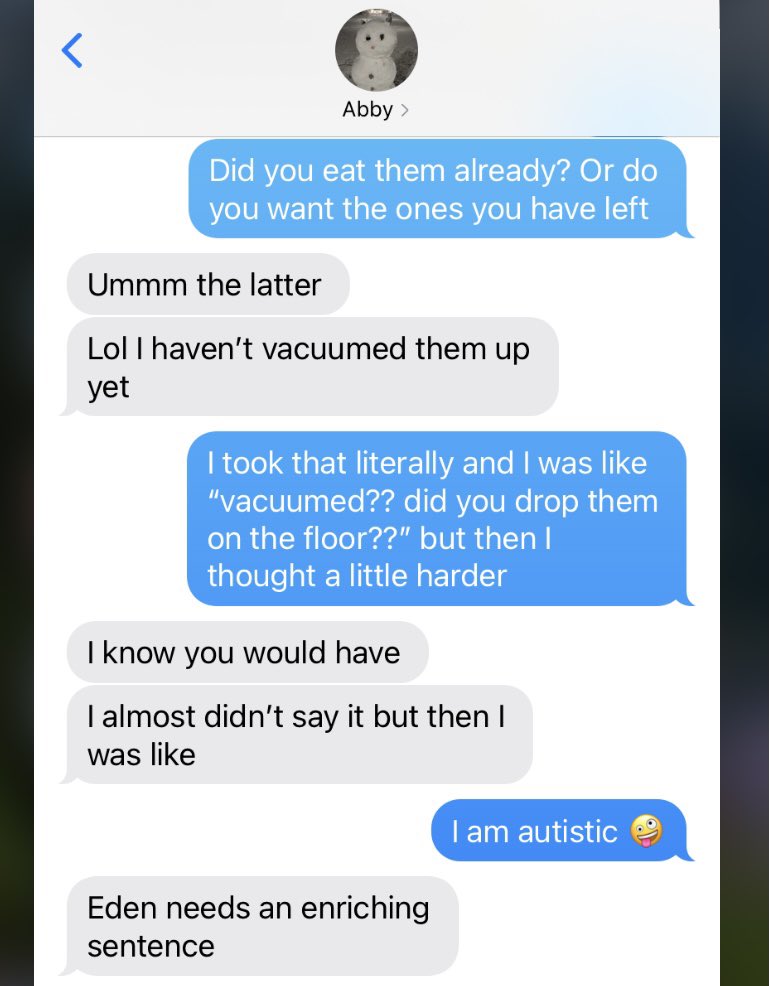
CW: ableism, Sia
Yesterday, in an interview on an Australian TV show, Sia said this about her decision to cast Maddie Ziegler as a nonspeaking autistic person in her new film:
“It is ableism... but it’s actually nepotism because I can’t do a project without [Maddie].”
Yesterday, in an interview on an Australian TV show, Sia said this about her decision to cast Maddie Ziegler as a nonspeaking autistic person in her new film:
“It is ableism... but it’s actually nepotism because I can’t do a project without [Maddie].”
When I saw this, I was stunned.
For those who don’t know, nepotism is “the practice among those with power or influence of favoring relatives or friends, especially by giving them jobs.”
So yes, her decision was ableist and nepotistic. But why would she just outright say it?
For those who don’t know, nepotism is “the practice among those with power or influence of favoring relatives or friends, especially by giving them jobs.”
So yes, her decision was ableist and nepotistic. But why would she just outright say it?
Ableism is bad. Nepotism is bad. So I was asking, “where is Sia’s sense of self-preservation?”
Then, as I was talking with my girlfriend Abby, she said:
“[Sia] doesn’t need to have [a sense of self-preservation]. No one is holding her accountable but the autistic community.”
Then, as I was talking with my girlfriend Abby, she said:
“[Sia] doesn’t need to have [a sense of self-preservation]. No one is holding her accountable but the autistic community.”
Sia is correct about what she did, and why. It’s something that autistic people already knew.
The problem is that she’s able to admit this, and face no consequences for it.
Autistic people are basically the only ones pushing back. And we’re not being taken seriously.
The problem is that she’s able to admit this, and face no consequences for it.
Autistic people are basically the only ones pushing back. And we’re not being taken seriously.
Sia herself is in agreement that what she did was ableist.
So what is there left for autistic people to do? Are we now in a situation where we have to reiterate that ableism is bad, actually?
Because it’s now clear that Sia simply doesn’t care. Neither do her fans.
So what is there left for autistic people to do? Are we now in a situation where we have to reiterate that ableism is bad, actually?
Because it’s now clear that Sia simply doesn’t care. Neither do her fans.
I think at this point, the most important thing to do is educate the general public about why all of this is not okay.
Maybe that will make a dent on the amount of people who watch the film.
And if not, at least more people will have heard the autistic point of view.
Maybe that will make a dent on the amount of people who watch the film.
And if not, at least more people will have heard the autistic point of view.
I know it feels like nobody is listening to us, because Sia isn’t.
But my first post about this situation, which is on Instagram, has over 100,000 likes at this point.
What that tells me is that even though Sia might not be ready to listen, a lot of people are.
But my first post about this situation, which is on Instagram, has over 100,000 likes at this point.
What that tells me is that even though Sia might not be ready to listen, a lot of people are.
So if you’re not autistic and this situation upsets you, please speak up about it.
Please amplify the voices of autistic people who are trying to talk about this issue but keep getting ignored.
Something big needs to change here. Autistic people’s opinions are not disposable.
Please amplify the voices of autistic people who are trying to talk about this issue but keep getting ignored.
Something big needs to change here. Autistic people’s opinions are not disposable.
• • •
Missing some Tweet in this thread? You can try to
force a refresh




